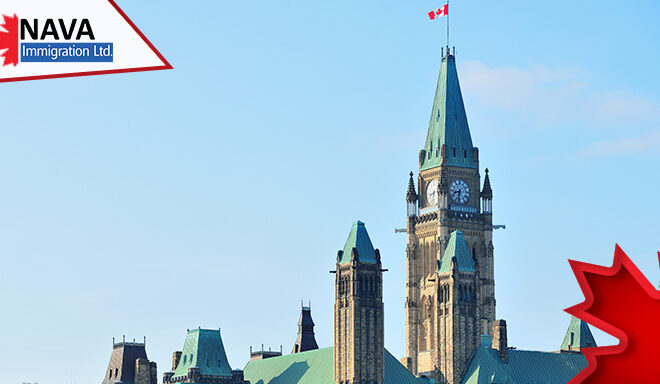Top IRCC Priorities to Strengthen Canadian Immigration System
The Standing Committee on Citizenship and Immigration (CIMM) of Canada called upon the immigration minister and Deputy Minister of IRCC on October 24 to discuss the top priorities of the Immigration Refugees and Citizenship Canada (IRCCs).
Top IRCC Priorities for Canadian Immigration: Role of Canadian Leaders
The role of Canada’s leaders, including Canada’s Immigration Minister and Deputy Minister, is notable in determining the top IRCC priorities for Canadian immigration.
Canadian immigration minister, Mr. Marc Miller, is responsible for working with IRCC stakeholders and Provincial and territorial governments to develop effective immigration plans for attaining numerous objectives. These include strengthening the country’s economy, reuniting families, and admitting refugees and asylum seekers.
Additionally, he is also accountable for encouraging the French language throughout Canada, especially outside of Quebec.
The Deputy Minister of IRCC, Christiane Fox, has a non-political role in Canadian immigration. She is the immigration department’s highest senior civil official. Her responsibility is to supervise the IRCC’s management. This includes the execution of strategies and policies as well as internal duties like managing budget as well as people.
Upcoming Improvements to the International Student Program
In the discussion, Minister Miller shed light on international student fraud and informed the committee that, in the forthcoming weeks, he would unveil measures to solidify the integrity of the international student program.
He added that the IRCC department is developing a Trusted Institutions Framework to bolster the integrity of Canada’s International Student Program. Further details are yet to be revealed, but the system will significantly depend on evaluating designated learning institutions based on specific criteria. These criteria include the institution’s ability to prove that they are trustworthy partners in terms of sustainable intake, verifying genuine students, tracking and reporting their compliance, and ensuring a safe and enriching experience for their international students.
The Minister further restated his opposition to placing a limit on the number of international students who can come to Canada as students.
Neil Yeates Report On IRCC
Neil Yeates, the former Deputy Minister of IRCC, released a report on IRCC earlier this year. The report describes ways in which IRCC might enhance its efficiency.
IRCC initiated the report to assess whether the current departmental structure is the most effective means to meet the department’s mandates.
As per the report findings, IRCC’s existing organizational structure was inefficient, and the report provided many suggestions for improvement. Deputy Minister Fox informed that the complete report would be presented to the committee within the two upcoming weeks.
She added that since she wanted all IRCC officials to have an opportunity to read the report first and, if required, review it with her, the report had not been made public immediately.
Review of the Express Entry Draws
The members of the Standing Committee On Citizenship and Immigration (CIMM) emphasized that the number of Express Entry draws has decreased since the appointment of Minister Marc Miller.
Regarding the decreased number of draws and ITAs, Deputy Minister Fox stated that this is majorly due to the IT issues that the department faced at the start of the category-based selection draws. She further added that they will improvise the draw frequency as they proceed.
Furthermore, to address the inquiries related to the number of skilled trades experts in Canada, Deputy Minister Fox declared that the department would hold Express Entry category-based draws for workers in skilled trades by December 2023. These are among the top IRCC priorities for Canadian Immigration.
Standing Committee on Citizenship and Immigration (CIMM)
Canada’s CIMM is composed of twelve members of Canada’s Parliament (MPs) and one or more representatives from each major political party on the committee. Their key role is to observe the federal policy related to Canadian immigration and multiculturalism.
The committee convenes on a regular basis to assess significant immigration matters.
The most recent topics of study include application backlogs, Bills before Parliament like Bill S-245, and international student irregularities. Bill S-245 is an Act to modify the Citizenship Act (which provides citizenship to certain Canadians).
Additionally, they play a key role in supervising the Canadian government and urging it to take action on specific issues. For instance, they may advocate for changes in immigration policies, such as implementing special immigration measures for individuals from Hong Kong in January this year or delaying the deportation of 700 Indian Students who were found to have entered the country with fraudulent acceptance letters.
Canada’s Immigration Levels Plan 2024-2026
When studying top IRCC Priorities for Canadian Immigration, the Minister also considered the country’s immigration-level plans for the coming years.
Canada’s immigration department, IRCC, plans to announce Canada’s Immigration Level Plan for 2024-2026 by November 1.
The immigration plan is crucial for the country as it assists the Government of Canada in foreseeing the rise in the country’s population and making strategies accordingly. This helps guarantee that there are sufficient facilities in the country, including housing, healthcare, education, and settlement services that can support new immigrants to establish themselves in Canada successfully. The plan must be balanced in order to satisfy the needs of the current Canadian population.
The immigration level plan is designed to attain Canada’s economic goals while also reuniting families and admitting refugees and asylum seekers.
However, due to high living costs in Canada and the shortage of affordable housing options, support for Canadian immigration has been declining. Minister Miller stated that growing the number of skilled new immigrants is crucial for enhancing home construction in the country.
Also, in an interview with Bloomberg News last August, he emphasized that the new immigration level plan will probably retain or enhance the present immigration targets outlined in the immigration level plan 2023-2025. In the current plan, Canada aims to welcome 500,000 new Permanent residents every year by the end of 2025.





